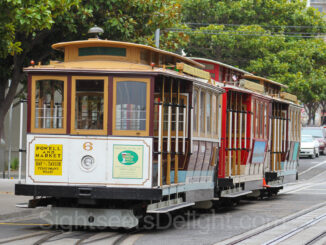MARIETTA, Ga. – The Kennesaw House is an impressive building, even by today’s standards. But its role in one of the most fascinating events of the Civil War is what makes it truly unique.
Built in 1845 as a cotton warehouse, it is one of the oldest buildings in Marietta, and it has witnessed a lot over the years. After serving as a warehouse for some time, the building was converted into the Fletcher House Hotel, and on April 11, 1862, with the Civil War in Full Swing, the Fletcher House unknowingly played host to a group of Union spies hoping to bring the war to a quick end.
The group – led by James J. Andrews – spent the night here before they boarded a northbound train on the morning of April 12, 1862, marking what turned into a wild day for the state of Georgia and the Confederacy. The raiders planned to steal a train at Kennesaw (then known as Big Shanty) and destroy the Western & Atlantic Railroad between Atlanta and Chattanooga, Tenn. They succeeded in stealing the locomotive, but the plan failed.
Interestingly, Dix Fletcher, the owner of the hotel during the Civil War, was a Mason and his son-in-law, Henry Cole, was a Union spy. Some have suggested that connection saved the Fletcher House from total destruction during Gen. William T. Sherman’s March to Atlanta in 1864, though that theory is tenuous at best. Sherman did use the hotel as a headquarters during his march.
While the hotel was spared from destruction, its top floor was destroyed in the burning of the city. During the Civil War, the hotel was used as a hospital and a morgue, leading many people to believe the building is haunted. In the 1920s, the hotel was used for shops, and decades later, it was turned into office space. In 1996, the top floor was taken over by the Marietta Museum of History.
Today, the Kennesaw House is the starting point for anyone who wants to retrace the Andrews Raid. There is a historic marker on the outside, but inside, the museum offers a series of exhibits dedicated to the city’s history and a general look back at years past. There is considerable memorabilia, including photographs and artifacts, related not only to the Andrews Raid, but also to the war in general.
One room overlooking the railroad tracks, the very room Andrews stayed in April 1862, is dedicated to the Civil War and the Great Locomotive Chase. It was here on the morning of April 12, 1862, that Andrews addressed his men, saying in part, “Boys, I tried this once before and failed; now, I will succeed or leave my bones in Dixie.”
The raid failed. Andrews was later hanged near what is today the intersection of 3rd and Juniper Streets in downtown Atlanta.




